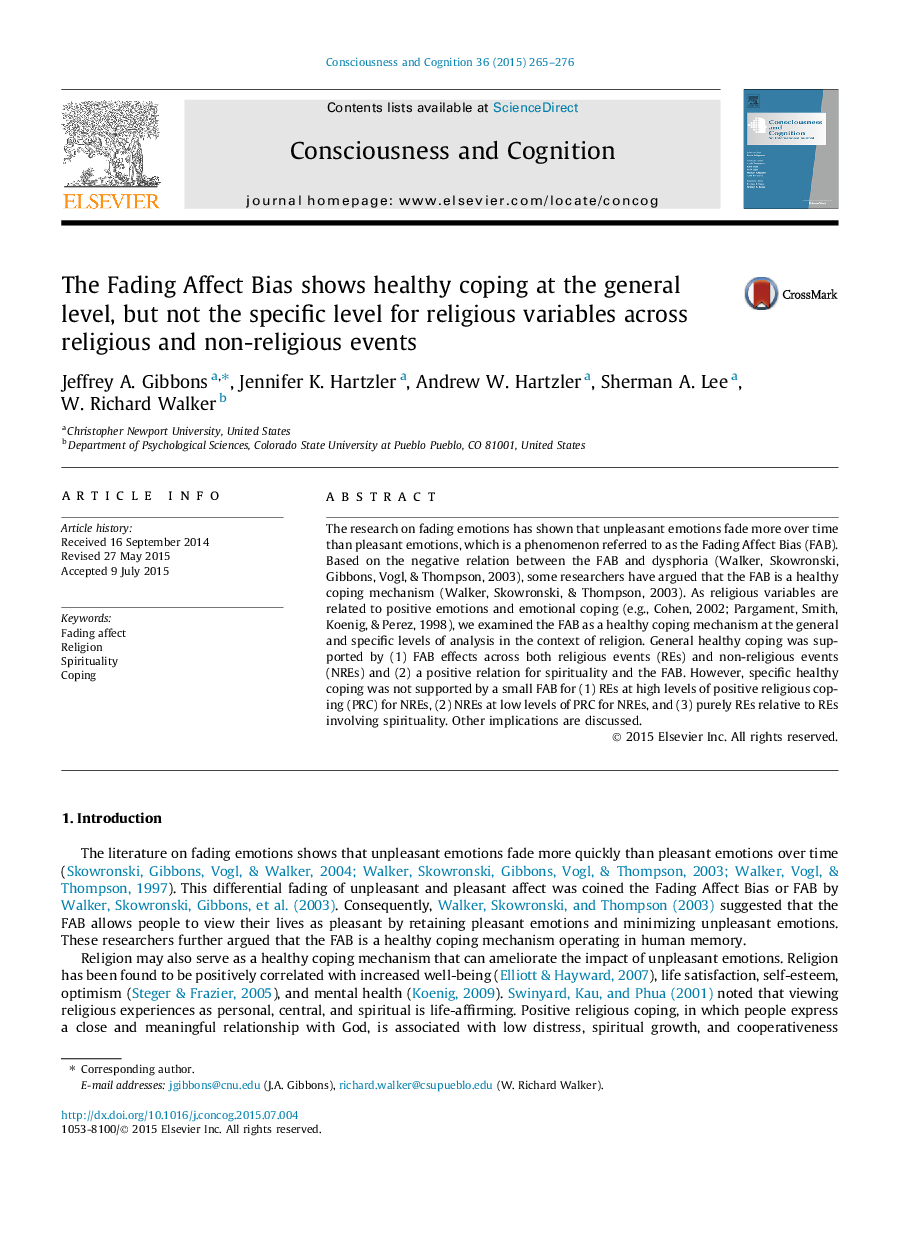| Article ID | Journal | Published Year | Pages | File Type |
|---|---|---|---|---|
| 7289102 | Consciousness and Cognition | 2015 | 12 Pages |
Abstract
The research on fading emotions has shown that unpleasant emotions fade more over time than pleasant emotions, which is a phenomenon referred to as the Fading Affect Bias (FAB). Based on the negative relation between the FAB and dysphoria (Walker, Skowronski, Gibbons, Vogl, & Thompson, 2003), some researchers have argued that the FAB is a healthy coping mechanism (Walker, Skowronski, & Thompson, 2003). As religious variables are related to positive emotions and emotional coping (e.g., Cohen, 2002; Pargament, Smith, Koenig, & Perez, 1998), we examined the FAB as a healthy coping mechanism at the general and specific levels of analysis in the context of religion. General healthy coping was supported by (1) FAB effects across both religious events (REs) and non-religious events (NREs) and (2) a positive relation for spirituality and the FAB. However, specific healthy coping was not supported by a small FAB for (1) REs at high levels of positive religious coping (PRC) for NREs, (2) NREs at low levels of PRC for NREs, and (3) purely REs relative to REs involving spirituality. Other implications are discussed.
Keywords
Related Topics
Life Sciences
Neuroscience
Cognitive Neuroscience
Authors
Jeffrey A. Gibbons, Jennifer K. Hartzler, Andrew W. Hartzler, Sherman A. Lee, W. Richard Walker,
